J-pop, natively also known simply as pops, is a musical genre that entered the musical mainstream of Japan in the 1990s. Modern J-pop has its roots in traditional Japanese music, but significantly in 1960s pop and rock music, such as The Beatles and The Beach Boys, which led to Japanese rock bands such as Happy End fusing rock with Japanese music in the early 1970s. J-pop was further defined by new wave groups in the late 1970s, particularly electronic synth-pop band Yellow Magic Orchestra and pop rock band Southern All Stars.
Oricon Inc., established in 1999, is the holding company at the head of a Japanese corporate group that supplies statistics and information on music and the music industry in Japan. It started as Original Confidence Inc., which was founded by Sōkō Koike in November 1967 and became known for its music charts. Oricon Inc. was originally set up as a subsidiary of Original Confidence and took over the latter’s Oricon record charts in April 2002.

Super Junior , also known as SJ or SUJU, is a South Korean boy band formed on November 6, 2005, by producer Lee Soo-man of SM Entertainment, the group comprised a total of thirteen members at its peak. Super Junior originally debuted with twelve members, consisting of leader Leeteuk, Heechul, Hangeng, Yesung, Kangin, Shindong, Sungmin, Eunhyuk, Siwon, Donghae, Ryeowook, and Kibum. Kyuhyun joined the group later in 2006.

Masahiko Kondō or Matchy is a Japanese singer, lyricist, actor, racing car manager and former semi-professional racing driver represented by Johnny & Associates. He was part of the Tanokin Trio.
Mao Abe is a Japanese singer-songwriter.
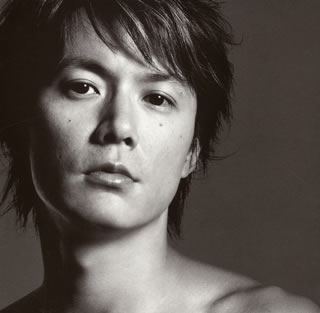
"Niji/Himawari/Sore ga Subete sa" (虹/ひまわり/それがすべてさ) is the eighteenth single by Japanese artist Masaharu Fukuyama. It was released on 27 August 2003. This single sold around 356,600 copies in its first week. It remained at the number 1 position on the Oricon chart for 5 consecutive weeks, breaking the artist record of four consecutive week from his 1994 single "It's Only Love". Niji was used as the theme song for Fuji Television drama Water Boys and Water Boys 2. "Himawari", written by himself, was originally released as a single sung by Kiyoshi Maekawa in 2002.

"Heaven/Squall" is the fourteenth single by Japanese artist Masaharu Fukuyama. It was released on November 17, 1999. It debuted at the number two position on the Oricon Chart in its first week with sales of 123,480 copies. It reached the number-one spot on the chart in its fifth week.

"Tokyo" is the twentieth single by Japanese artist Masaharu Fukuyama. It was released on 17 August 2005.

"Milk Tea/Utsukushiki Hana" is the twenty-first single by Japanese artist Masaharu Fukuyama. It was released on 24 May 2006.

"Sō " is the twenty-third single by the Japanese artist, Masaharu Fukuyama. It was released on 22 October 2008.

"Keshin" is the twenty-fourth single by Japanese artist Masaharu Fukuyama. It was released on 20 May 2009. Keshin was used as the drama Majo Saiban's theme song. "Kiss Shite" (KISSして) is a self-covered version of KOH+ single and "Tsuioku no Ame no Naka " (追憶の雨の中) is taken from his performance in Daikanshasai 2008. This single was released in three different versions – Limited Towel version, Limited DVD version and Normal version.
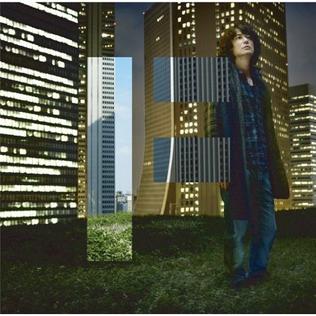
"Hatsukoi" is the twenty-fifth single by Japanese artist Masaharu Fukuyama. It was released on 16 December 2009. "Hatsukoi" (はつ恋) has a tied in with Toshiba Regza Fall/Winter CM. "On and On 09'" is the re-worked version of "On and On," which was performed in Mischishirube 20th Anniversary Tour. "Anmonite No Yume" (アンモナイトの夢) is an instrumental piece used in Dunlop CM. This single was released in three versions- Limited Edition T-shirt,, Limited Edition DVD and Normal Edition. Fukuyama decided to release "Hatsukoi" as a single due to the public demands. He also performed the song in NHK's Kōhaku Uta Gassen, live via satellite from Glover Garden in Nagasaki.

"Hello" is the tenth single by Japanese artist Masaharu Fukuyama. It was released on February 6, 1995. It was used as the theme song to the drama Saikō no Kataomoi: White Love Story.
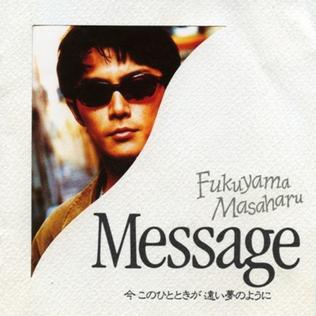
"Message" is the eleventh single by Japanese artist Masaharu Fukuyama. It was released on October 2, 1995.
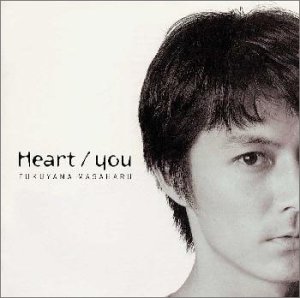
"Heart/You" is the twelfth single by Japanese artist Masaharu Fukuyama. It was released on April 30, 1998. It was used as the drama Meguriai's theme song.
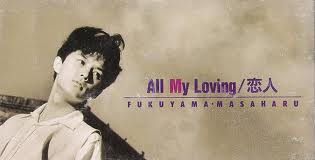
"All My Loving" is the eighth single by Japanese artist Masaharu Fukuyama. It was released on September 29, 1993.

"Melody" is the seventh single by Japanese artist Masaharu Fukuyama. It was released on June 2, 1993.

"Arigatō " is a single by Hey! Say! JUMP. It was released on December 15, 2010.

South Korean boy group BTS have released six studio albums, four compilation albums and five extended plays.

"Ice Rain" is a song recorded by Japanese singer Shizuka Kudo for her tenth studio album, Purple. It was released through Pony Canyon as the album's lead single on November 18, 1994, merely two months following the release of her ninth studio album, Expose. The single was released simultaneously with Kudo's third video album, Female III. An English version of the song was recorded for the compilation album, Best of Ballade: Current (1998). In 2015, DAM asked their users to select their favorite Shizuka Kudo songs to sing karaoke to and compiled a top ten list; "Ice Rain" came in at number three and was the only song penned by Kudo to make the top ten.

















